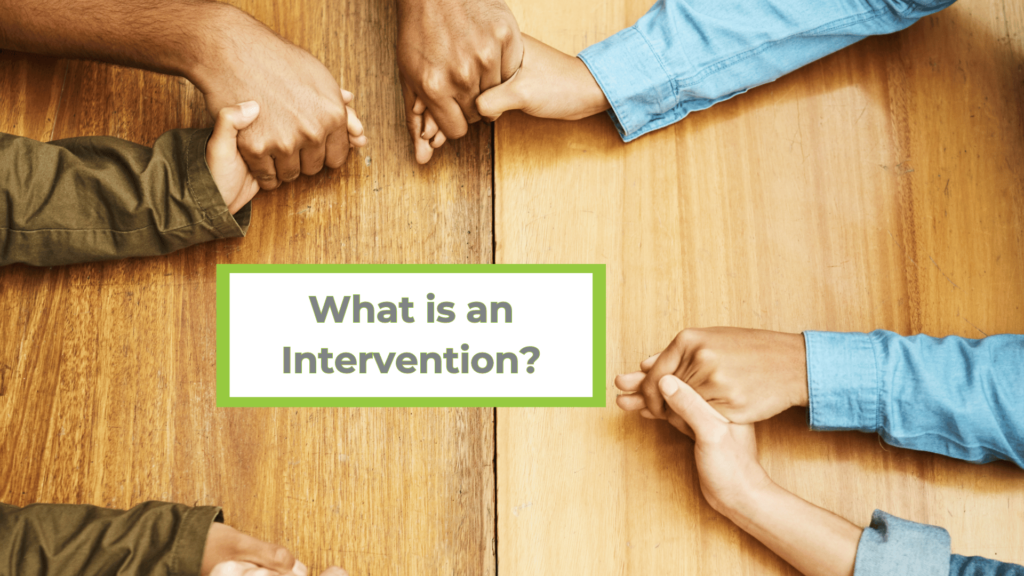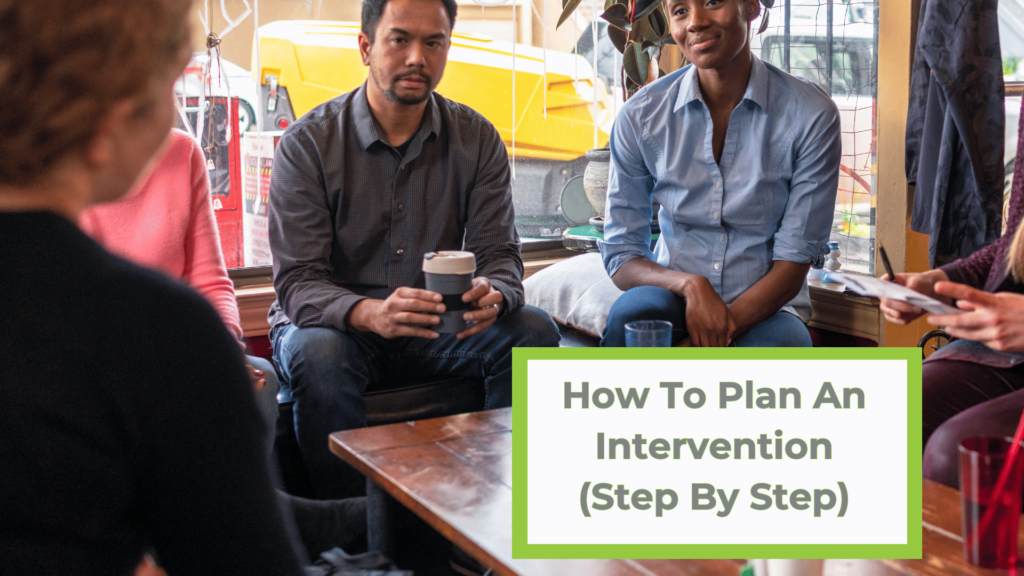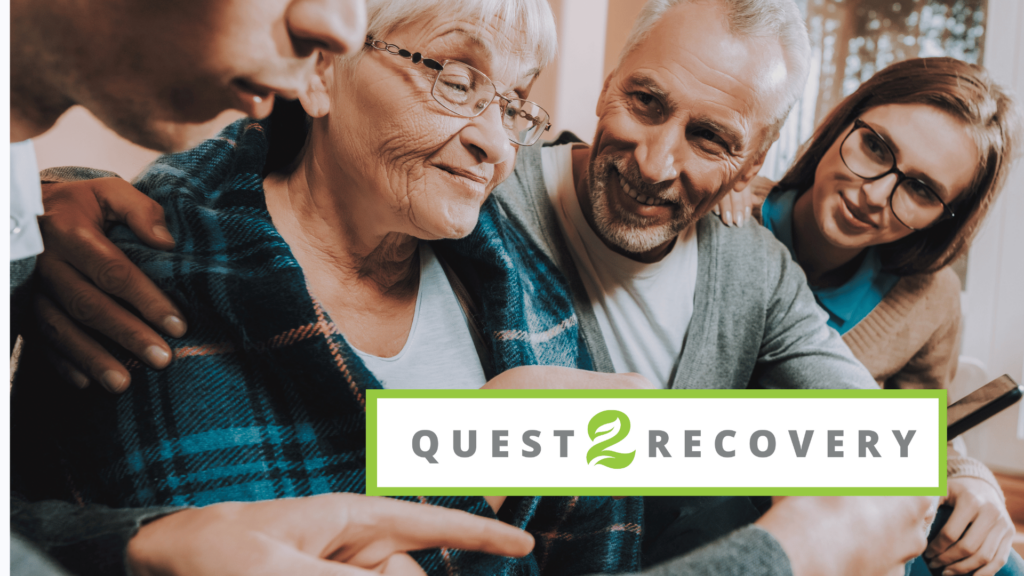Quest 2 Recovery, a dedicated addiction treatment center located in Lancaster, California, understands the profound impact that substance abuse has on individuals and their loved ones. In our mission to provide compassionate and effective treatment, we recognize the critical role of interventions in the recovery journey. This blog post aims to shed light on the meaning, strategies, and methods of intervention in substance abuse, offering hope and guidance for those seeking a path to recovery.
Interventions are more than just meetings; they are lifelines extended to those struggling with addiction. According to the National Institute on Drug Abuse, timely interventions can significantly increase the likelihood of someone seeking help and starting their recovery journey. These structured conversations are not just about convincing someone to seek treatment; they’re about showing love, concern, and support while highlighting the realities of addiction.
In this post, we will explore the various aspects of interventions. From understanding what they entail to discussing the different approaches and strategies, we aim to provide a comprehensive guide. Whether you are a family member, friend, or caregiver, this information will equip you with the knowledge and tools necessary to initiate a potentially life-changing conversation.

Understanding Interventions in Substance Abuse
What is an Intervention?
An intervention in the context of substance abuse is a deliberate process designed to help an individual recognize the impact of their addiction and encourage them to seek treatment. It involves a carefully planned meeting, usually orchestrated by family and friends, in consultation with a healthcare professional or interventionist. The primary goal is to provide the individual with a structured opportunity to make changes before things get worse.
What is The Importance and Goals of Interventions
Interventions are crucial because they often serve as the catalyst for change when individuals are unable or unwilling to recognize the severity of their addiction. The goals of an intervention include:
- Breaking through the denial often associated with addiction.
- Providing a safe space to express concern and love.
- Offering a clear path to treatment and recovery.
Interventions: A Turning Point in Recovery
For many, an intervention can be a pivotal moment in their struggle with addiction. It’s an opportunity for the individual to see how their behavior affects themselves and those around them. It’s not just about confronting the person with the problem; it’s about showing them they are not alone in their journey to recovery. The ultimate aim is to motivate them to take the first step towards treatment and healing.
In the next section, we will delve into the various models of intervention, helping you understand which approach might be best suited for your unique situation. Stay tuned as we guide you through the intricate process of planning and executing a successful intervention.
What Are The Different Types of Interventions?
Exploring Different Intervention Models
Understanding the different models of intervention is crucial in choosing an approach that aligns with the unique needs of the individual struggling with addiction. Here are some commonly used models:
- The Johnson Model: Traditionally confrontational, this model involves a surprise meeting where family and friends express their concerns in a structured manner. The emphasis is on showing the individual the consequences of their addiction.
- Family Systemic Model: This approach is less confrontational and involves the entire family, including the person with addiction. It focuses on healing and improving family dynamics to support recovery.
- ARISE Model: A non-confrontational and collaborative approach, the ARISE model encourages the individual to be involved in the intervention planning process, promoting a sense of agency and responsibility.
Each model has its strengths and challenges. For instance, the Johnson Model can be effective in breaking through denial but may also cause resistance. The Family Systemic and ARISE models are more inclusive, fostering a supportive environment but may take longer to move towards the goal of treatment.

How To Plan an Intervention
A Step-by-Step Guide
Planning an intervention is a delicate process that requires thoughtful preparation. Here are the steps to consider:
- Form a Planning Group: Gather a small group of close family members, friends, or colleagues who are affected by the individual’s substance use. Involving too many people can be overwhelming.
- Consult a Professional: Consider consulting a professional interventionist or addiction specialist who can guide you through the process and participate in the intervention.
- Gather Information: Educate yourselves about addiction and treatment options. This knowledge will be crucial during the intervention.
- Set the Stage: Choose a private, non-threatening location for the intervention. Ensure the individual feels safe and not cornered.
- Plan Your Message: Each member of the intervention team should prepare what they want to say. This includes expressing care and concern, providing specific examples of destructive behaviors, and outlining the impact on their lives.
- Rehearse the Intervention: Practice the intervention with your group, ideally under the guidance of the professional. This helps to refine the message and approach.
- Manage Expectations: Be prepared for various reactions, including denial, anger, and refusal. Stay calm and focused on the goal of encouraging treatment.
- Follow Through: End the intervention with clear steps and support for starting treatment. Be prepared to act immediately if the individual agrees to seek help.
What is The Role of Professional Interventionists?
Professional interventionists bring expertise and experience to the process, increasing the likelihood of a positive outcome. They help in managing the dynamics of the intervention, ensuring that the conversation stays constructive. They can also assist in navigating the emotional and logistical complexities that often arise.
In the next sections, we will explore effective strategies for conducting an intervention and what steps to take following the intervention to support your loved one’s journey to recovery.
What are the Strategies for a Successful Intervention?
Effective Communication Techniques
The success of an intervention largely depends on how the message is communicated. Here are some strategies to ensure your communication is effective:
- Use Empathetic Language: Approach the conversation with empathy and understanding. Use “I” statements to express your feelings and avoid blame.
- Be Specific: Provide concrete examples of behaviors caused by substance abuse and their impact on you and others. This helps the individual understand the gravity of the situation.
- Stay Focused: Keep the conversation focused on the issue of substance abuse. Avoid bringing up unrelated grievances which can derail the discussion.
- Listen Actively: Be prepared to listen to the individual’s perspective. This shows respect for their feelings and can lead to a more open dialogue.
- Maintain a Non-confrontational Tone: Keep the tone of the intervention non-aggressive. A confrontational approach can provoke defensiveness and resistance.
- Offer Hope and Support: Emphasize that recovery is possible and that you will support them through the process. Highlight the benefits of seeking treatment.
Handling Resistance and Emotional Responses
It’s common for individuals to react negatively during an intervention. Here are some tips for handling these situations:
- Stay Calm: If the individual becomes angry or defensive, remain calm and composed. Avoid reacting in a way that escalates the situation.
- Reaffirm Your Concern and Support: Reiterate that your actions are out of love and concern for their well-being.
- Be Prepared for Denial: Many individuals in the throes of addiction deny having a problem. Reiterate your observations and concerns without arguing.
- Know When to Take a Break: If emotions run too high, it might be necessary to take a break and reconvene later.
What Are The Post-Intervention Steps?
What to Do After a Successful Intervention?
A successful intervention is just the beginning. Here are the next steps:
- Immediate Action: If the individual agrees to seek treatment, act immediately. Have a treatment plan ready to implement without delay.
- Support Through the Treatment Process: Be actively involved in their recovery process. Offer emotional support and participate in family therapy sessions if available.
- Set Boundaries: Establish clear boundaries and consequences if the individual refuses treatment or relapses. This is crucial for their recovery and your well-being.
- Continued Education and Support: Educate yourself about addiction and recovery. Consider joining support groups for families of individuals with substance abuse issues.
What If the Intervention Doesn’t Lead to Treatment?
Not all interventions result in immediate acceptance of treatment. If this happens:
- Maintain Open Communication: Keep the lines of communication open. Let them know you are there to support them when they are ready.
- Protect Your Well-being: Take care of your mental and emotional health. Seek support for yourself.
- Be Patient but Firm: Be patient, but reiterate the need for treatment. Be consistent in your message and boundaries.
- Consider Future Interventions: Sometimes, multiple interventions are necessary. Assess the situation and consider another intervention if needed.
In the following sections, we will address common questions about interventions and conclude with a summary of the key points covered in this post.

The Power of Interventions in the Journey to Recovery
In conclusion, interventions play a vital role in the fight against substance abuse. They offer a structured opportunity for individuals to recognize the impact of their addiction and take the first step towards a healthier, sober life. The process requires careful planning, empathetic communication, and unwavering support. At Quest 2 Recovery, we understand the complexities involved in staging an intervention and are here to guide you through every step.
Remember, an intervention is more than a meeting; it’s an act of love and concern. It’s a moment where change becomes possible. If you’re considering an intervention for a loved one, know that you are not alone in this journey. Quest 2 Recovery is committed to providing the support, guidance, and care needed to navigate this challenging but hopeful path.
Where To Find a Professional Interventionist
If you or someone you know is struggling with addiction, don’t wait to seek help. Contact Quest 2 Recovery for expert advice, support, and comprehensive treatment options. Visit our website or call us directly to learn more about our services and how we can assist you in taking the first step towards recovery.









